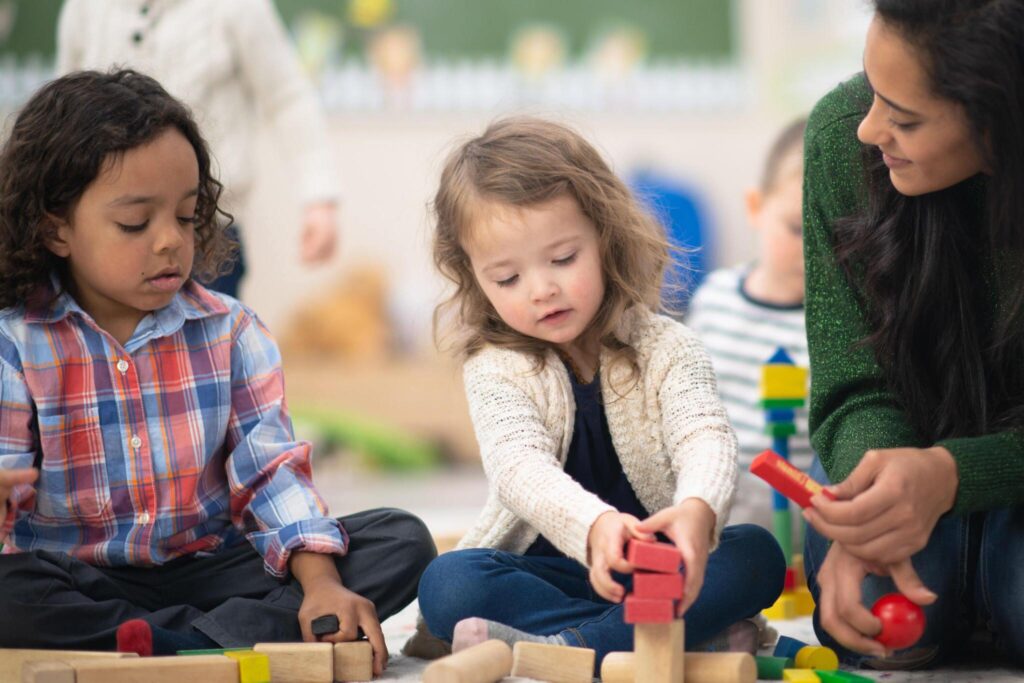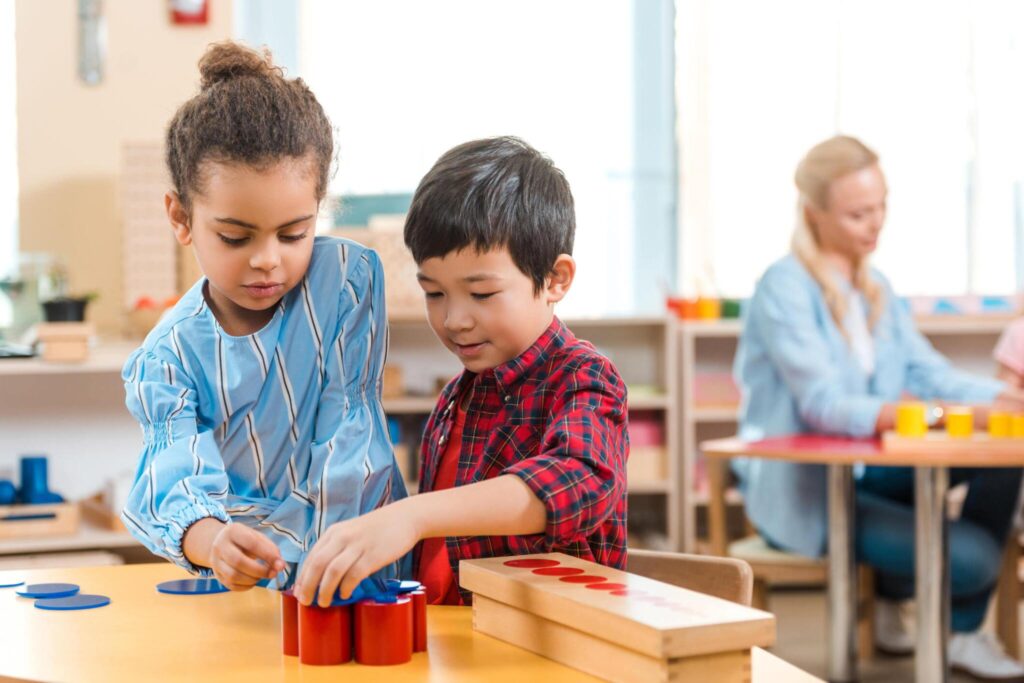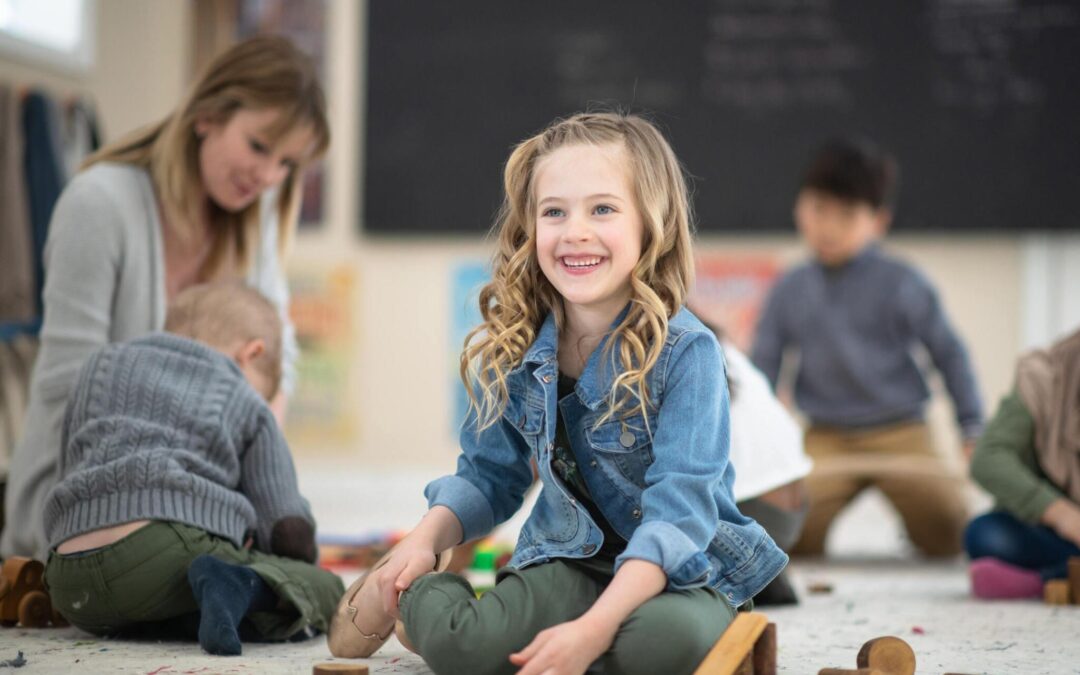In the evolving landscape of early childhood education, a growing number of parents are exploring alternative methods that promise more than just academic excellence. Among these, Montessori education stands out as a beacon for those seeking a holistic approach to their child’s development. But, is Montessori good? Let’s delve into what makes Montessori education not just good, but exceptional, especially for toddlers at Beibei Amigos.
Understanding Montessori Education
Understanding Montessori Education is key to appreciating its profound impact on early childhood development. Founded in the early 20th century by Dr. Maria Montessori, this educational approach revolutionized how we view children’s learning and development. It’s grounded in the belief that children are naturally eager for knowledge and capable of initiating learning in a supportive, thoughtfully prepared learning environment.
Montessori education begins at a young age, sometimes as early as infancy, recognizing the critical developmental stages that occur in the first few years of life. This early start is fundamental to the Montessori philosophy, which advocates for nurturing each child’s potential from the very beginning.
The question of what age Montessori starts is often asked by parents considering this approach for their children. The answer highlights Montessori’s adaptability and respect for the individual growth patterns of each child, with programs tailored to meet the needs of various age groups, including infants, toddlers, preschoolers, and beyond.
For toddlers, especially those aged 2 to 3 years, the Montessori classroom is a place of exploration and discovery. The environment is meticulously prepared to encourage independence and growth, with furniture and materials sized for small hands and bodies.
This setting not only accommodates the physical size of toddlers but is also designed to meet their developmental needs. A Montessori schedule for 2-year-olds, for instance, includes activities that foster basic motor coordination, independence, and language development.
In a Montessori toddler classroom, children are given the freedom to choose their activities from a range of options presented to them. This freedom is guided by the environment, which is structured to ensure that all materials and activities are developmentally appropriate and contribute to the child’s growth.
The role of the Montessori teacher is to observe and gently guide the child’s natural learning process, intervening as little as possible. This approach allows children to experience the joy of learning by themselves, fostering a love for knowledge that is carried with them throughout their lives.
Key Differences Between Montessori and Traditional Daycare
- Learning Approach: Montessori emphasizes self-directed learning, allowing children to choose activities based on their interests, fostering independence and a love for learning. Traditional daycare often follows a more structured, adult-led curriculum.
- Role of Teachers: In Montessori schools, teachers act as guides or facilitators, observing and assisting only when necessary. In contrast, teachers in traditional daycare settings often take a more central role in directing activities.
- Classroom Environment: Montessori classrooms are designed to support self-exploration and cater to various developmental stages, filled with hands-on learning materials. Traditional daycare classrooms may not offer the same level of tailored learning environments.
- Social Interaction: Montessori encourages mixed-age classrooms, which fosters natural mentorship and social development. Traditional daycare typically groups children by age, limiting the range of interaction.
- Learning Pace: In Montessori, children progress at their own pace, ensuring mastery of a concept before moving on. Traditional daycare may follow a set curriculum pace, regardless of individual children’s readiness.
- Curriculum Focus: Montessori curriculum is holistic, covering practical life skills, sensory activities, and academic foundations. Traditional daycare curriculums may focus more on play-based learning without the same emphasis on academic skills.
- Assessment: Montessori assesses children through observation and portfolio assessments, focusing on individual growth over time. Traditional daycare may use more conventional methods of assessment, like tests and benchmarks.
- Discipline: Montessori discipline is centered around self-discipline and respect for others, using positive reinforcement and natural consequences. Traditional daycare might employ time-outs and other forms of discipline.
- Material Use: Montessori uses specific learning materials designed to introduce concepts concretely and then abstractly. Traditional daycare often uses a variety of toys and games that may not have the same educational design.
- Community and Family Engagement: Montessori schools often encourage a strong community and family involvement in the learning process. Traditional daycare settings may not offer the same level of involvement or continuity between home and school environments.
The Benefits of Montessori Education
- Enhanced Social Skills: Children learn to interact and work within a community, fostering cooperation and empathy.
- Improved Concentration: The Montessori method encourages deep focus and sustained attention to tasks, enhancing learning outcomes.
- Increased Self-discipline: Students in Montessori programs often develop strong self-discipline, learning to manage their time and responsibilities effectively.
- Solid Academic Foundation: Montessori education provides a robust groundwork in core academic areas, preparing children for future educational challenges.
- Fosters Responsibility: Montessori education instills a sense of responsibility in children, encouraging them to take ownership of their actions and environment.
- Respect for Self and Others: Respect is a cornerstone of the Montessori philosophy, teaching children to value themselves and appreciate the diversity of others.
- Prepares for Life: Beyond academic skills, Montessori education equips children with the life skills needed for success beyond the classroom.
Milestones Achieved in Montessori Preschool

The Montessori educational approach, renowned for its emphasis on individual growth and self-directed learning, provides a nurturing environment for preschool-aged children to achieve significant developmental milestones. This method, which is centered around the child’s natural curiosity and capacity for learning, stands out for its ability to foster independence, critical thinking, and a lifelong love for learning. Here, we explore the key milestones children reach in a Montessori preschool, underscoring the profound benefits of this educational path.
Mastering Self-Care Tasks
One of the primary milestones in a Montessori preschool is the emphasis on self-care and independence. Children are encouraged to take responsibility for their personal needs, such as dressing, eating, and tidying up after themselves. This focus on self-care tasks is not just about learning practical skills; it’s about building self-esteem and confidence. Children learn to view themselves as capable individuals, which is a fundamental aspect of their overall development.
Developing Fine Motor Skills
Montessori preschools provide a variety of hands-on activities designed to enhance fine motor skills. Practical life activities, such as pouring, spooning, or threading, are not only engaging for children but are also crucial for developing the dexterity and coordination needed for writing and other academic tasks. These activities are carefully designed to match the children’s developmental stage, ensuring that they are both challenging and achievable, thereby promoting a sense of accomplishment and motivation to learn.
Acquiring Foundational Language and Math Skills
Language and math skills are cornerstones of the Montessori curriculum, and children are introduced to these concepts through materials and activities that make learning concrete and enjoyable. In language, children begin with phonetic awareness, gradually moving to reading and writing at their own pace. In math, Montessori materials such as number rods and sandpaper numbers help children understand concepts of quantity, sequence, and operations in a tactile and visual way. This hands-on approach to learning helps children grasp complex ideas more easily and retain information more effectively.
Nurturing Social and Emotional Development
Social and emotional development is another critical milestone achieved in Montessori preschools. The mixed-age classroom setting fosters a sense of community and cooperation. Older children have the opportunity to lead and mentor younger ones, while younger children learn from observing and interacting with their older peers. This dynamic promotes empathy, respect, and social awareness. Additionally, the emphasis on peace education and conflict resolution equips children with the skills to navigate social interactions and express their feelings constructively.
Cultivating Creativity and Curiosity
Montessori education celebrates and nurtures the natural curiosity and creativity of children. Through open-ended activities and the freedom to explore their interests, children develop a love of learning that goes beyond the classroom. This approach encourages critical thinking, problem-solving, and the ability to connect ideas across different areas of learning. By providing a rich and stimulating environment, Montessori preschools ensure that children’s creativity and curiosity flourish.
Choosing the Right Montessori Program for Your Toddler

Choosing the right Montessori program for your toddler is a critical decision that can significantly influence your child’s early development and love for learning. As the educational landscape continues to evolve, more parents are drawn to the Montessori method for its child-centered approach and focus on fostering independence, curiosity, and a deep respect for the child’s ability to learn.
But with various programs available, how can you ensure you’re selecting one that truly embodies the principles of Montessori education and offers the best experience for your child?
Here are some guidelines to consider when choosing the right Montessori program for your toddler.
Accreditation and Adherence to Montessori Principles
Principles include providing a prepared environment that encourages children to explore, a curriculum that covers practical life, sensory activities, language, mathematics, and culture, and teachers trained in Montessori education. Programs like Beibei Amigos, which follow these guidelines, offer a learning environment where your child can truly benefit from the Montessori method.
Rich Curriculum That Engages Young Learners
The curriculum should offer a wide range of activities that cater to the developmental needs and interests of young children. From practical life exercises that develop fine motor skills and independence to sensory activities that refine the senses, a comprehensive Montessori curriculum will support your child’s holistic development.
Qualified, Passionate Montessori Teachers
The role of the teacher in a Montessori classroom is significantly different from that in traditional educational settings. Montessori teachers are guides who facilitate the learning process, encouraging independence and allowing children to lead their own discovery. When choosing a Montessori program, consider the qualifications and passion of the teaching staff.
A Prepared Environment That Encourages Exploration
The Montessori classroom, or “prepared environment,” is thoughtfully designed to support self-directed learning and exploration. Look for programs that offer classrooms equipped with Montessori materials that are accessible to children, allowing them to choose activities that interest them.
Conclusion
The journey through early childhood education is pivotal. Montessori education, with its focus on the holistic development of the child, offers a path that nurtures not just academic success but the development of the whole person. At Beibei Amigos, we believe in the transformative power of Montessori education. We invite you to explore the Montessori option with us and discover why Montessori is the ideal choice for your child’s early years.

